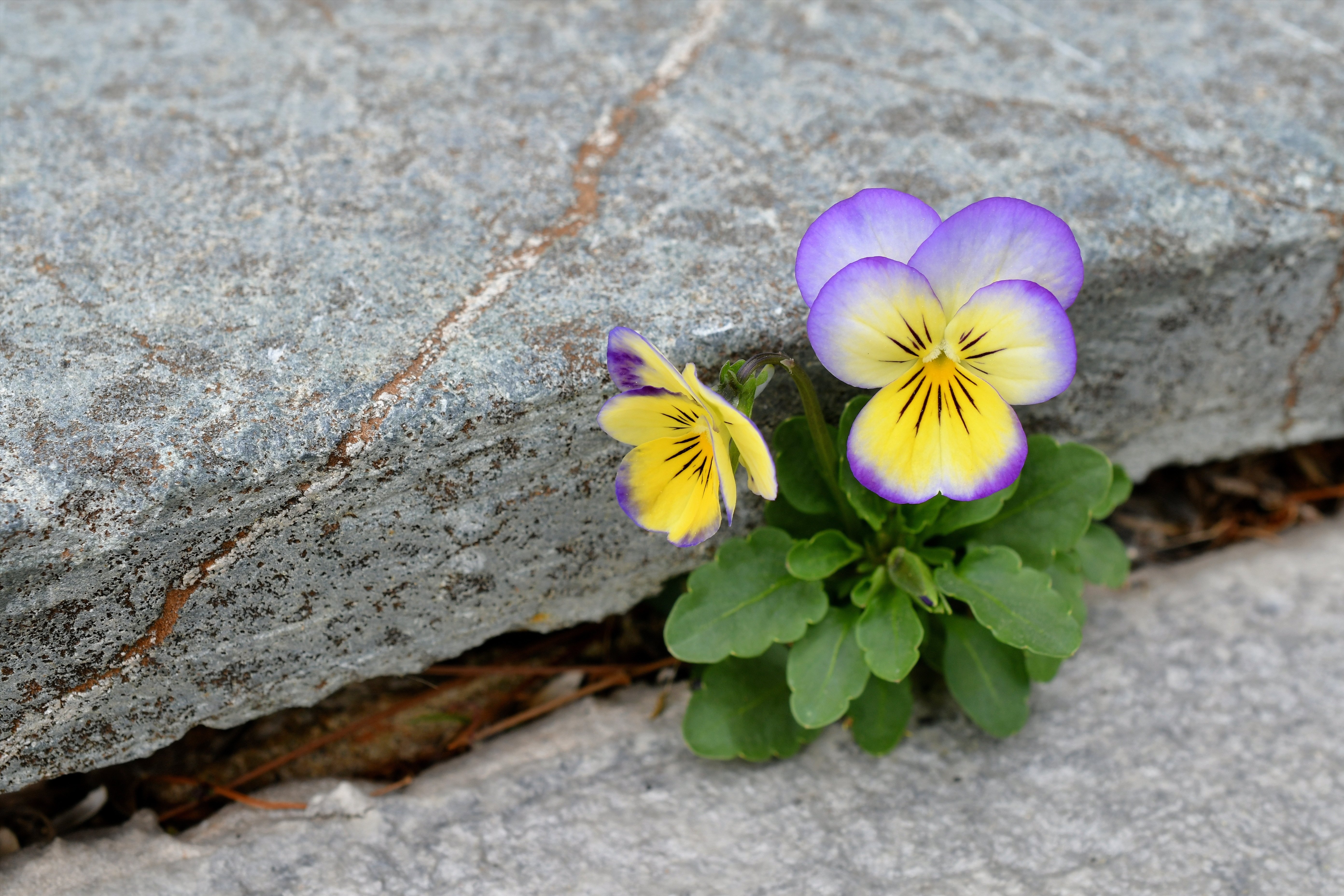Healthy aging: What older adults can teach us about resilience
by Katie Wright | Jul 21, 2021 | in-home care, seniors living independently, resilience | 0 Comments

There’s a complex characteristic of old age that grows from uncomplicated roots.
Resilience.
Quite simply, it develops over the years from something we’re all doing – experiencing life.
Have you ever wished your young self knew then what your old self knows now? Maybe you could have prevented some of the mistakes you made and heartaches you suffered. It might have been nice to skip over the hard parts.
In fact, our realistic self knows those experiences that felt like stumbles or failures were actually the building blocks of healthy aging. What happened in our 20’s informed our 30’s and 40’s, and since then every additional year has strengthened our foundation. Now in older adulthood we have a vast library of coping mechanisms because we’re the culmination of everything we’ve ever been.
I like to think about aging in this way because it counters our Western culture’s habit of dismissing older people. Younger adults often perceive old age in terms of physical decline and loss of vitality.
And therein lies the paradox of aging.
Which is – despite the limitations aging imposes on us, older adults seem to be more content and emotionally agile than their younger counterparts. We’re able to tolerate ambiguity. We have a way of integrating the pieces and seeing the big picture. Our frame of reference has expanded and our vantage point has improved.
We’ve seen the beginning and end of countless things.
These are skills learned from living for a long time, and they help us to buffer life’s disappointments with resilience. And because resilience can be developed, we should all take a lesson from our elders about what makes that possible.
What is resilience?
In physics, resilience refers to a flow of energy. Think of a rubber ball as it gets squeezed – it absorbs energy and compresses its shape. As it releases energy, it bounces back to its original form.
This physical explanation offers a perfect analogy to human resilience. When we face disappointment, we’re like that rubber ball getting squeezed. We lose our form momentarily. The energy we absorb when that happens gets released as we recover and regain our footing.
Throughout our lives, we’ve absorbed a variety of shocks and emerged intact on the other side of them. We’ve figured out how to recuperate and cope.
That’s resilience.
Resilience is something found surprisingly often in older adults because we’ve figured out how to absorb those shocks. A lifetime of experience offers plenty of practice.
Resilience is dynamic and takes different forms. It might look like regaining health after an illness. It might be overcoming depression following a loss. Or it might show up as being able to maintain independence in the face of disability.
Now that we have a definition in hand, let’s look at why resilience matters as we age.
How does resilience promote healthy aging?
Resilience is a newsworthy topic. Type it into your search engine and you’ll see articles about world health, global warming, and our political climate. It’s fascinating that whether we’re discussing the headlines or healthy aging, there are three elements of resilience that surface.
Purpose, recovery, and growth.
Resilience relies on having a sense of purpose. This means feeling as if our life has direction and meaning. If we have a purpose we’re able to move forward and maintain interest in the people and activities in our midst.
Resilience involves the ability to recover and regain our balance after we’ve experienced a crisis.
If setbacks eventually lead to growth – learning from our missteps and planning to prevent them in the future – we’re exhibiting resilience.
Each of these elements of resilience builds on the others. Purpose gives us reason to regain our balance, and when we do that successfully we grow. That’s the healthy aging resilience promotes.
How do resilient people behave?
Resilience falls loosely into three categories – mental, social, and physical. Those who age successfully understand the importance of adapting, connecting, and maintaining good health.
Mental resilience is best described as the ability to experience a setback, cope with it, and move forward. It involves knowing what’s important to us and accepting that we’re still fundamentally ourselves despite changes we experience.
Social resilience is all about finding our purpose and maintaining the relationships that mean the most to us. For some, it means reaching out to form new connections. One example is asking for help when we need it.
Physical resilience is striving to practice self-care and awareness. Physical well-being is the essential framework of mental and social wellness. It propels us into our final years with more confidence and vitality.
Advice about resilience from older adults
For an informative, entertaining dose of advice from a group of seniors, read 30 Lessons for Living: Tried and True Advice from the Wisest Americans by Karl Pillemer, Ph.D. It’s available through the King County and Seattle Public Library systems.
Pillemer, a Cornell University professor and gerontologist, interviewed thousands of older adults who had endured significant upheaval in their lives. Referring to them as “the experts,” he compiled their collective wisdom in his book. It’s an inspiring read that offers frank and useful advice on aging. It’s also an excellent example of resilient old people.
The underlying message from Pillemer’s experts is that worrying about getting old is a waste of time. They also agree that we should be less concerned with death and more focused on eliminating bad habits that lead to chronic illnesses. Their rationale? We don’t want to spend our final years in disabling pain due to a preventable condition.
The experts Pillemer interviewed offered personal stories of how they had survived major crises. Here are some takeaways:
- Time is an essential ingredient in aging well. As we age our available time dwindles, so it’s important to make the most of it. Older adults wisely accept that each day holds something to savor.
- Change is a fact of life. There have been many times of transition and crisis in our long lives, and we’ve emerged to live another day. The more we adapt, the stronger we are.
- Worrying is a waste of time. We can feel more optimistic and in control when we choose to be prepared.
- Focusing on simple pleasures reminds us of how many things we have to be grateful for.
How to help older adults boost their resilience and learn from them in the process
It’s never too late to benefit from building resilience. About learning pointers for being resilient from our older adult experts, Karl Pillemer writes, “This wisdom exists in people you know, right here, right now. And it’s yours for the asking.”
Engaging with the older and younger people in our lives provides a two-way benefit. We can help older adults recognize their strengths and identify their purpose. We may encourage them to persevere in the process. Likewise, we can pass examples of resilience along to younger people – personal stories that serve up bits of advice in a meaningful way.
Here are Pillemer’s “10 Questions to Ask the Experts in Your Life”:
- What are some of the most important lessons you feel you have learned over the course of your life? If the person has difficulty getting started, try this follow-up question:
- If a young person asked you, “What have you learned in your———years in this world,” what would you tell him or her?
- What kinds of advice would you have about getting and staying married? Follow-ups:
- What’s the secret of a long marriage?
- What mistakes should young people avoid regarding getting and staying married?
- What advice would you have for a younger couple thinking of calling it quits?
- What kinds of advice do you have about raising children?
- Follow-up: What mistakes should people avoid in child-rearing?
- Do you have any advice you can share about finding fulfilling work and how to succeed in a career?
- Some people say that they have had difficult or stressful experiences but they have learned important lessons from them. Is that true for you? Can you give examples of what you learned?
- As you look back over your life, do you see any “turning points”; that is, a key event or experience that changed the course of your life or set you on a different track?
- Follow-up: What are some of the important choices or decisions you made that you have learned from?
- What would you say you know now about living a happy and successful life that you didn’t know when you were twenty?
- What would you say are the major values or principles that you live by?
- Have you learned any lessons regarding staying in good health?
- What advice would you give to people about growing older?
At SeaCare we work with families to promote healthy aging. Every caregiver and care recipient makes a valued contribution to our community of support. Contact us to learn more.
Katie Wright writes about aging and senior wellness from Bellingham, WA. You can read more about her here.
References
https://www.sciencedirect.com/science/article/pii/S0197457216000689
https://nursingandhealth.asu.edu/sites/default/files/resilience-in-aging.pdf
Pillemer, Karl A. 30 Lessons for Living: Tried and True Advice from the Wisest Americans. Penguin Publishing Group.
If you or a loved one you know are looking for additional support during this time and are interested in scheduling a free in-home assessment, please contact SeaCare In-Home Care Services today! A SeaCare family member is standing by. 425-559-4339.



0 Comments